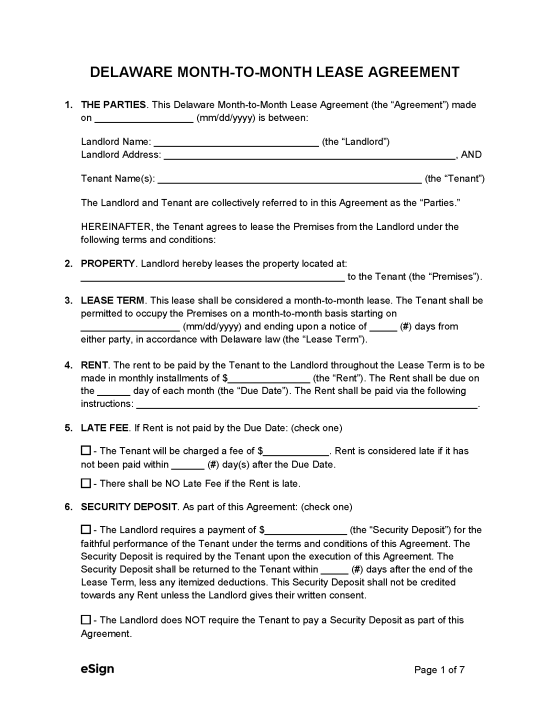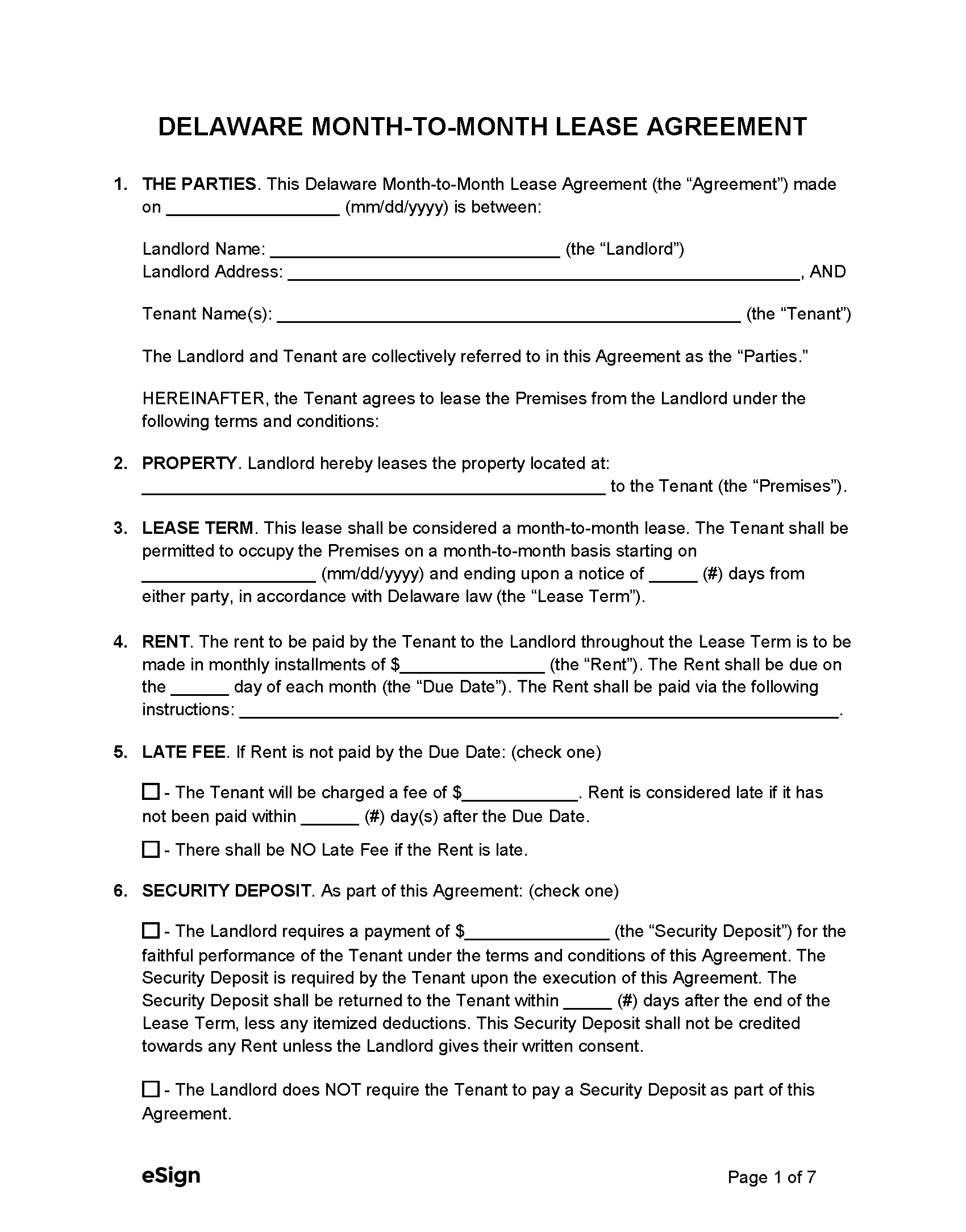Delaware Month-to-Month Lease Agreement
Last updated November 3rd, 2025
A Delaware month-to-month lease agreement is a document executed by a landlord and a tenant to create a residential rental arrangement that renews every month. This agreement helps maintain the enforceability of the parties’ rights, duties, and obligations by detailing how much rent is owed, who is responsible for utilities, how to terminate the agreement, and all other policies.
Rental Application –
This form is completed by tenants and returned to landlords to determine eligibility for tenancy.
Month-to-Month Laws
- Termination Notice – Either landlord or tenant may end a month-to-month lease agreement by giving the other party 60 days’ notice.[1]
- Rent Increase Notice – Landlords must give a 60-day notice if they intend to increase the rent.[2]
Required Disclosures (4)
- Landlord-Tenant Code (PDF) – Landlords must provide new tenants with a summary of the Delaware landlord-tenant code at the beginning of a rental agreement.[3]
- Lead-Based Paint Disclosure (PDF) – It is federally mandated that the landlord and tenant both sign this form if the rental property was built prior to 1978.[4]
- Owner/Landlord Disclosure – Landlords must provide new tenants with their contact information and the contact information of any designated agents or property managers.[5]
- Right to Representation – When entering a rental agreement, landlords must provide this notice to inform low-income tenants of their right to free legal representation[6]

